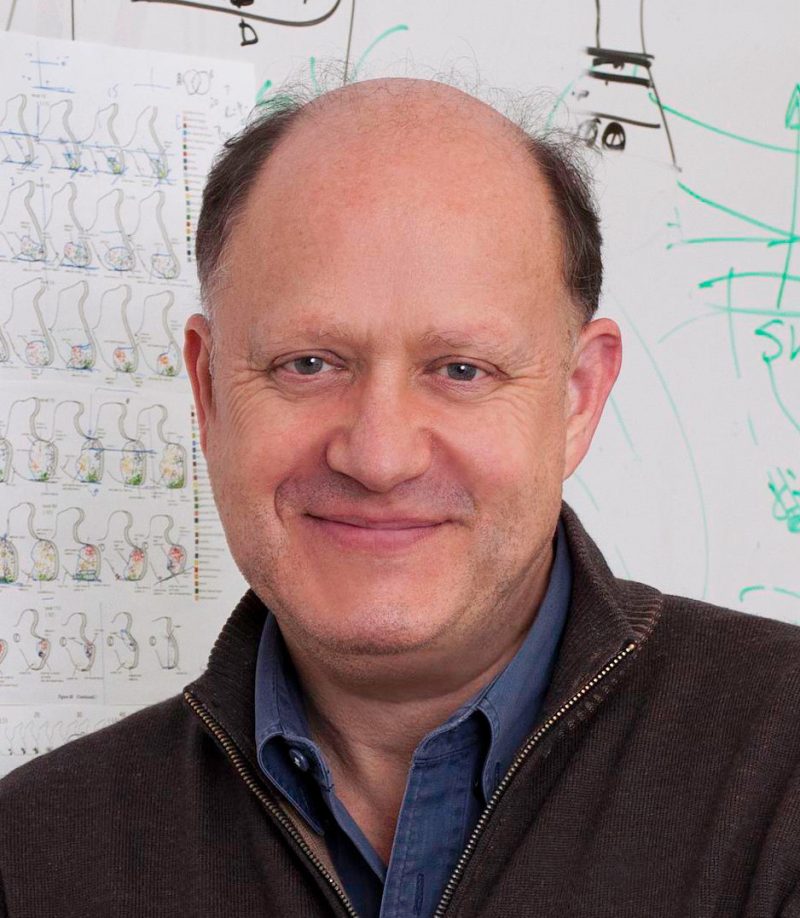

Thomas M. Jessell
RELATED STORY: Thomas Jessell: Linking Molecules to Perception and Motion
Thomas Jessell earned his B.Pharm. from the University of London and his Ph.D. in neuropharmacology from the University of Cambridge, where he worked with Leslie Iverson. Their collaboration led to the finding that opiate drugs inhibit the release of substance P from the terminals of primary sensory nerve cells that mediate nociception [the sensing of potentially harmful stimuli]. He completed postdoctoral work at Harvard Medical School with Gerald Fischbach (now the Scientific Director of e Simons Foundation), and joined the Harvard Department of Neurobiology faculty in 1981. He moved to Columbia University in 1985, where he codirects both the Kavli Institute for Brain Science and the Mortimer B. Zuckerman Mind Brain Behavior Institute. He is also an Investigator of the Howard Hughes Medical Institute.
Jessell served on the Rita Allen Foundation’s Scientific Advisory Committee from 1999 to 2007. He is a Fellow of the Royal Society of London and a Foreign Associate of the U.S. National Academy of Sciences. He was a co-recipient of the 2008 Kavli Prize in Neuroscience and a recipient of the 2012 Canada Gairdner International Award.
Jessell’s research focuses on the developmental assembly of the vertebrate central nervous system. He has defined the general logic, as well as many of the key cellular and molecular mechanisms, that control the assembly and functional organization of circuits in the spinal cord. His research has revolutionized our understanding of neural development and laid the foundation for a better understanding of the cellular physiology of the spinal cord and reflex behavior.